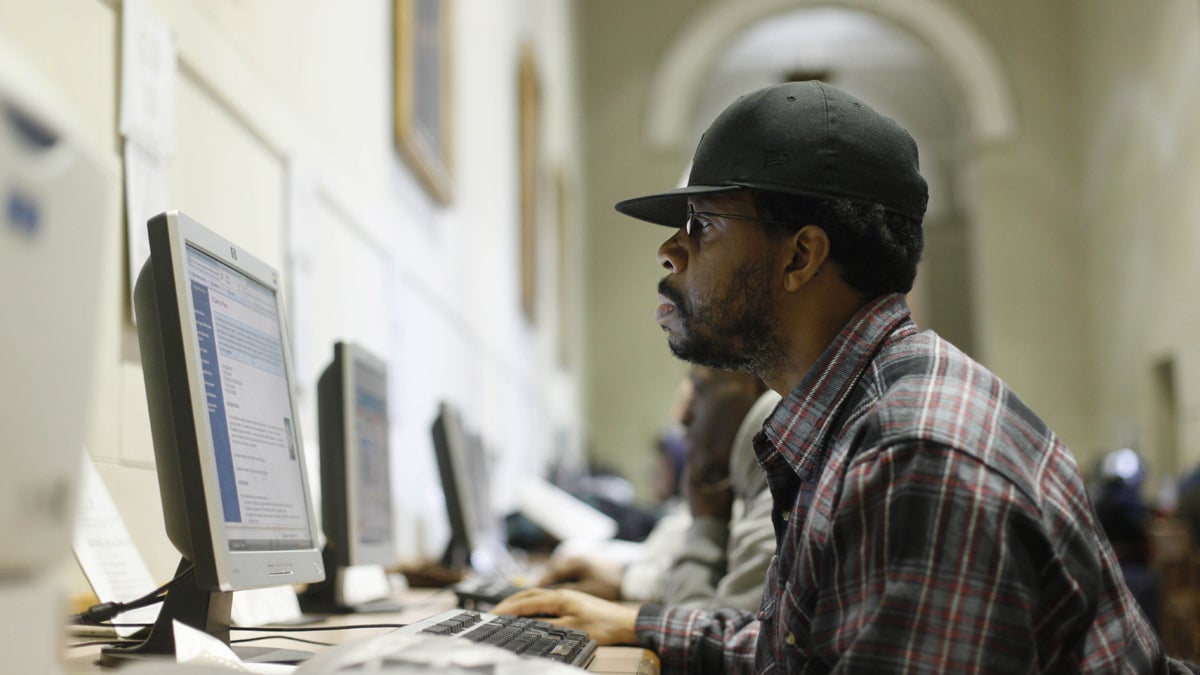To stay relevant, libraries must rethink how they connect to communities

A patron is shown at the central branch of the Free Library of Philadelphia . (AP Photo/Matt Rourke
Since the advent of the Internet, libraries no longer have a monopoly on information. Across the country, the changing digital landscape means that libraries need to rethink the role they play within communities.
Historically, libraries have held a critical role in the fabric of civic life, helping to build more informed and engaged communities by connecting people with information, ideas, and each other. According to Pew Research, library usage has been declining over the past three years, primarily driven by technological change. At this critical juncture, when libraries are struggling to remain relevant, they need to embrace more opportunities to carry the field forward.
Staying relevant
Libraries are even more vital in our new civic information environment. It is not sufficient for them to survive, they need to expand and thrive. This will require developing new muscles — but new ideas are not sufficient. We also need to escape the old ones. In order to do so, they need to focus on capacity building and understanding what it takes to innovate from within.
The future of libraries will be determined by their ability to stay relevant to the lives of individuals and communities they serve. The field is in need of greater cross-sector partnerships. Libraries can do a better job of collaborating with like-minded organizations working towards the public good. We’ve witnessed a model of this with Storytellers Without Borders, a partnership between the Dallas Morning News and the Dallas Public Library. This project is engaging librarians and journalists to help high school students learn about their community while building digital journalism skills.
Community focus
Libraries have not always been clear about their social relevance. Today they have the chance to take advantage of old and new tools for telling their stories and to raise awareness about their civic importance. In the face of budget cuts and disinvestment in public services, this is more critical than ever. The Foundation Center is working on a tool to help libraries identify funders and train libraries do a better job of fundraising.
Finally, it’s important that libraries continue to develop programming that is responsive to the needs of their community — from introducing neighbors to new technology tools to connecting them with untapped collections and information. In Philadelphia, we’re seeing an example of this with the Free Library’s Cultureshare project, which is prototyping a subscription-based, librarian-curated collection of local media content on a monthly basis. In addition, both Chicago Public Library and New York Public Library have introduced programs to loan mobile hotspots to thousands of families living without broadband access.
These all serve as examples of ways libraries can stay relevant during a time of disruption. More than that, in these exciting and turbulent times the expertise, openness and social commitment that libraries have historically provided are even more vital for building and maintaining resilient communities.
Over the last two years Knight Foundation has awarded $10.2 million in support to more than 40 projects to strengthen libraries focused on libraries’ efforts to succeed in this new age. Most recently, in July 2016 we announced 14 winners of the Knight News Challenge on Libraries, which sought ideas to help libraries serve 21st century information needs. We believe these forces of change will continue to disrupt libraries, and we welcome your help in thinking of how to strengthen these important public institutions for generations to come.
—
John Bracken is the Knight Foundation’s vice president for media innovation. Eva Pereira is the Knight Foundation’s media innovation associate.
Apart from the Free Library, two other Knight News Challenge winners in Philadelphia include Temple University and Philadelphia Community Access Media. All three won $35,000 grants to prototype library-related ideas.
WHYY is your source for fact-based, in-depth journalism and information. As a nonprofit organization, we rely on financial support from readers like you. Please give today.




